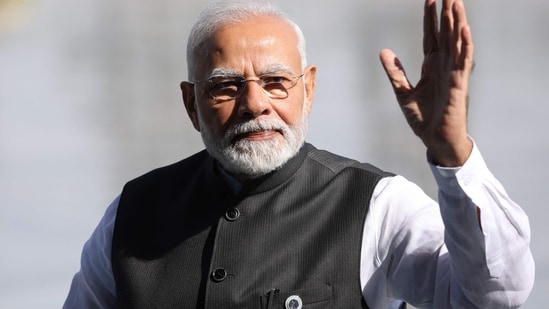(Guru Prakash)
Over the last couple of days, the political discourse is heating up. Prime Minister Narendra Modi recalled a statement by former PM Manmohan Singh in which he called for the first right/claim of minorities especially, Muslims, over national resources. From the infamous reversal of the progressive Shah Bano verdict that essentially disenfranchised divorced Muslim women from claiming maintenance to acquiring the unique distinction of being among the first countries to ban The Satanic Verses by Salman Rushdie – the Congress has never shied away from brazen appeasement.
After tendering his resignation from the Nehru cabinet on September 27, 1951, B R Ambedkar said in Parliament: “…why is no relief granted to the Scheduled Castes? Compare the concern the government shows over safeguarding the Muslims. The Prime Minister’s whole time is devoted to the protection of Muslims… what I want to know is, are the Muslims the only people who need protection? Are the Scheduled Castes, Scheduled Tribes and the Indian Christians not in need of protection? What concern has he shown for these communities? So far as I know, none and yet these are the communities which need far more care and attention than the Muslims.”
Manmohan Singh’s statement in 2006, then, must not be viewed in isolation but as an institutional approach by the Congress to stay in power. Neerja Chowdhury writes in How Prime Ministers Decide: “Rajiv Gandhi had thought that the Muslim Women’s Bill would satisfy the Muslims and the opening of the locks on the grille would make the Hindus happy.” The surreptitious art of trying to gain political leverage by exploiting the sentiments of the masses has long been the modus operandi of the Congress party.
Minority appeasement and social justice cannot coexist. Period. In the 2009 general elections, Congress went to the extent of promising nationwide reservation for Muslims in jobs and education. There is a constitutional basis and a history of social marginalisation that provides a moral justification for reservation for SCs, STs and the OBCs. Muslim leaders like the Owaisi brothers have publicly stated that they have been rulers of this country in the past. The NCERT medieval history textbooks bear testimony to the widespread presence of a Muslim aristocracy. They were connoisseurs of art and culture and there have been robust sources of social capital and networks within the community. Dalits remain largely landless whereas the Waqf Board owns several assets and properties across India. It is difficult to find the logic behind the accommodation of Muslims in the quota meant for socially backward communities.
Hansraj Gangaram Ahir, Chairperson, National Commission for Backward Classes says, “There is 32 per cent reservation for OBCs in Karnataka. Under this, they have done bifurcation, like Category I, I(B), II(B), III(A), III(B). There are 95 castes including 17 castes of Muslims under Category I. In Category II(B), there are 103 castes including 19 Muslims. What has happened in Karnataka is that all Muslims in the state are categorised as OBC. We have asked them on what basis this reservation has been given. We are not getting a proper clarification from the Karnataka government.”
The Justice Ranganath Mishra Commission and the Sachar Committee sowed the seeds of the idea of including Muslims in the reservation meant for SCs, STs and OBCs. However, this goes against the fundamental spirit of the Constitution of India. The Supreme Court has, meanwhile, reserved its verdict on the minority institution status of Jamia Millia Islamia and Aligarh Muslim University. This will determine if marginalised sections will get reservations in admission and recruitment at both universities. The façade of Dalit-Muslim unity and the rhetoric of “Jai Bhim, Jai Meem” falls flat here. The Andhra Pradesh and Karnataka governments are already flirting with the idea of including Muslims in the OBC category.
The Constitution of India turning 70 years old is a milestone to be celebrated. The men and women who drafted this document were people of great vision and foresight. There is unwarranted fear-mongering by a section of the Opposition around the Constitution that reflects a lack of vision and imagination. The principles of equality and fair treatment are the cornerstone of the Constitution.
For us Dalits, the Constitution is a matter of commitment and not politics. It empowers us. It is because of the Constitution that I have this platform to articulate my ideas and we will leave no stone unturned to ensure that our constitutional safeguards are not diluted.
(The writer is national spokesperson, BJP)

